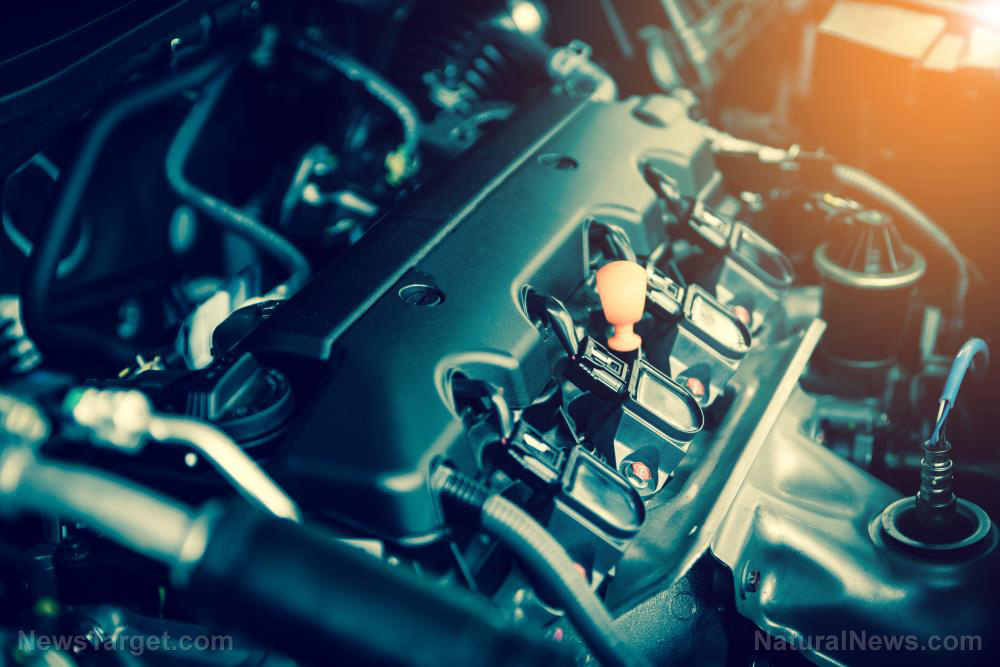First they came for your gas stove, now they want to outlaw your car’s gas engine, too
04/12/2023 / By Ethan Huff

The Environmental Protection Agency (EPA) under fake president Joe Biden wants to ban all gas-powered cars in the not-too-distant future in order to stop global warming and climate change.
Proposed new emissions standards would “move (the) U.S. car market decisively toward electric vehicles,” the agency revealed, adding that it hopes to convert “up to [two-thirds]” of all cars sold to EV models by the year 2032.
If implemented, the EPA policy would force most new cars sold by that year to be EVs – no gas allowed, meaning they cannot even be hybrids. Not long after that, the agency hopes to axe all gas cars from the market entirely.
The program would be phased in starting in 2027, when all light-duty vehicles sold new will need to meet new greenhouse gas performance standards. By 2032, between 64 and 67 percent of all new car sales would need to be EVs only.
“This is the planned rationing of vehicles,” says Marc Morano of The Climate Depot. “The planned rationing of American cars. That’s the only way this plan makes sense … the only result is going to be shortages of cars and a completely altered used car market.”
(Related: In case you missed it, the Biden regime also proposed a nationwide ban on gas stoves last fall, but then relented due to widespread unpopularity.)
America is going the way of Cuba and East Germany – straight into authoritarian communism
As explained by Morano, all of this is exactly what happened to places like Cuba and East Germany, which succumbed to communism under similar circumstances.
“You can look to Cuba to find out what it’s like to have a raging used car market because that’s what we’re looking at here,” he warns.
“And you can look to old East Germany. East Germany had their famed Trabant car, where people would have to get on waiting lists for years to get one, and that’s what we’re faced with here when the government is going to mandate that you can only buy a new electric car.”
The left-wing obsession with all things electric is nonsensical from the perspective of affordability and reliability. Earth-based fuels like oil and gas are abundant, inexpensive, and highly reliable, while electric power is expensive, unreliable, and just plain stupid.
How will the average person power his EV in the event of a power outage? What about when he becomes stranded out in the middle of nowhere with no charging stations anywhere in sight?
In the United States, at least, there is still time to stop this madness. Our country does not have to go the way of Australia, where some banks are now refusing to finance loans for people wanting to purchase gas-powered vehicles.
The World Bank is also moving in the same direction, having promised to phase out all funding for gas-powered cars in the shockingly near term.
“The powers that be, the corporate world, the bankers, the governments, academia – they’ve decided that gas-powered cars are over and they’re putting all the forces into play to end it without our say in it,” Morano warns.
Then we have the Biden regime, which wants the imposition of new pollution limits that would force at least 54 percent of all new vehicles to be sold as electric models by the year 2030.
“I believe it’s pretty doable,” said Margo Oge, chair of the International Council on Clean Transportation and a former Obama regime EPA official. “The industry is there. Europe is ahead of the U.S., China is ahead of Europe, and these companies are global companies.”
Everything big government is trying to do aims to stamp out freedom and liberty – but in the name of “saving the planet.” To learn more, visit GreenTyranny.news.
Sources for this article include:
Submit a correction >>
Tagged Under:
banned, Biden, big government, car, Climate, climate change, conspiracy, electric, electric vehicle, Emissions, engine, EPA, freedom, gas, gas stove, global warming, green deal, green tyranny, insanity, Liberty, stupid, Tyranny
This article may contain statements that reflect the opinion of the author
RECENT NEWS & ARTICLES
EPA.News is a fact-based public education website published by EPA News Features, LLC.
All content copyright © 2018 by EPA News Features, LLC.
Contact Us with Tips or Corrections
All trademarks, registered trademarks and servicemarks mentioned on this site are the property of their respective owners.


















